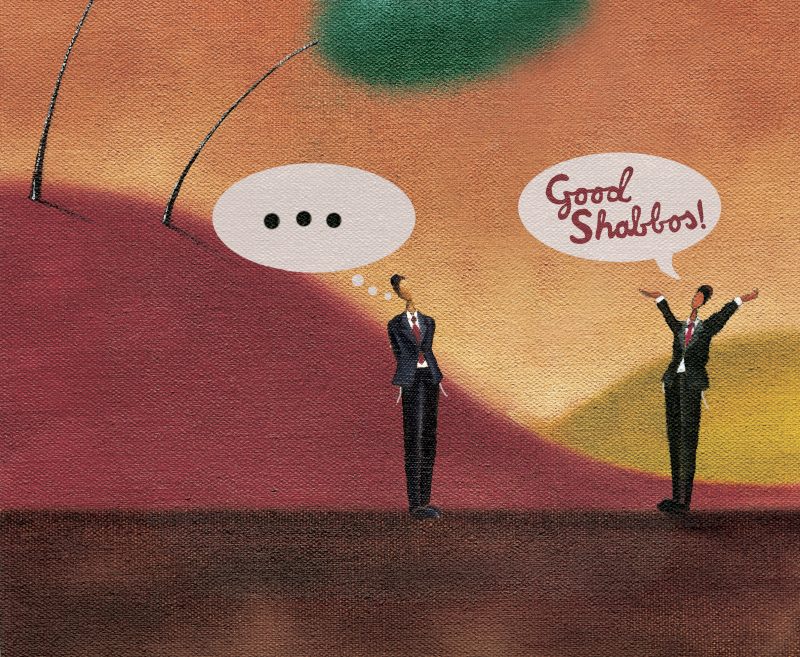Have you ever heard that happiness is a state of mind? A recent post on the Harvard Health Publications site reveals the benefits of having an optimistic disposition. They even suggest a possible correlation between having an upbeat attitude and living longer.
I grew up in Memphis, Tennessee where it was common courtesy to greet strangers with a warm smile and a hearty good morning. When I moved to New York, I quickly learned that such customs are not universal. It was quite a culture shock. I had to get used to reining in my random greetings. It was bizarre for me to watch people actively ignore each other, even when standing in close quarters. I certainly did not get used to it very quickly, if ever.
When I first got married I moved to Boro Park, Brooklyn. It was during our initial Shabbos as a newlywed couple that my wife and I were taking a walk. I wished an older couple Good Shabbos in passing. They stopped, peered intently at me, and then the woman answered, “I thought I knew you!” I had never seen her before or since. It sounds humorous, but that still makes me think.

Why was it so odd to say something kind to a stranger? I mean what’s the harm, really? Can I brighten someone’s day without committing a faux pas? I still remember the famous Wednesday night schmooze given by Rabbi Moshe Chait, zt”l, the Rosh Yeshiva of Chofetz Chaim Jerusalem back in 1983. It was a weekly lecture about ethics and moral values. He would often tell us that showing a smile to someone else is as refreshing as handing them a glass of cold milk on a hot day, and the best thing is that it doesn’t cost us anything.
Over three decades later I recall those lectures and I notice how the world has changed so much. We warn our kids about stranger danger and advise them not to even engage in conversation with people they do not already know. That was not even a consideration when I was young.
I do have a theory for why people are reluctant to greet each other here. I grew up in a relatively small town. Greeting each other on the street was not a huge investment of time or energy. Now consider the number of people who live and work in New York City. Over 8.5 million people live here, at the highest population density in the nation. If we were to greet or even smile at people as we pass there would be no end to it, especially in busy Manhattan or on a crowded subway car. We could conceivably spend our entire day just greeting people! Besides, a lot of New Yorkers seem to be in too big of a hurry to stop for a moment for anything other than what they are so intently focused on doing.
That said, on Shabbos all bets are off. I am in no rush as I walk from my house to my shul. I have plenty of time and good cheer to spread as I do my best to extend a ‘Good Shabbos’ greeting to every coreligionist I pass. More often than not, and to their credit, I generally receive a reply from the people in my own neighborhood. Mordy Mehlman, the editor in chief of the Flatbush Jewish Journal, has done an excellent job of promoting this very same topic. He has valiantly tried to change the local minhag and make it a regular custom to wish a ‘Good Shabbos’ to one another, even to strangers as they pass on the street. Those efforts display a beautiful thought. How much time does that really take? The truth is you never know how a brief greeting can transform someone’s outlook.
If we assume that the Harvard study is correct, that happy people live longer, and we also believe that we have the power to help people feel better, then is it too far of a leap to posit that we have the power to improve and extend the lives of others with something as simple as a smile? Let’s all do the lab work together, and begin wishing each other a hearty ‘Good Shabbos!’
I encourage you to share your own stories at pinchosshine@gmail.com
You must be logged in to post a comment.